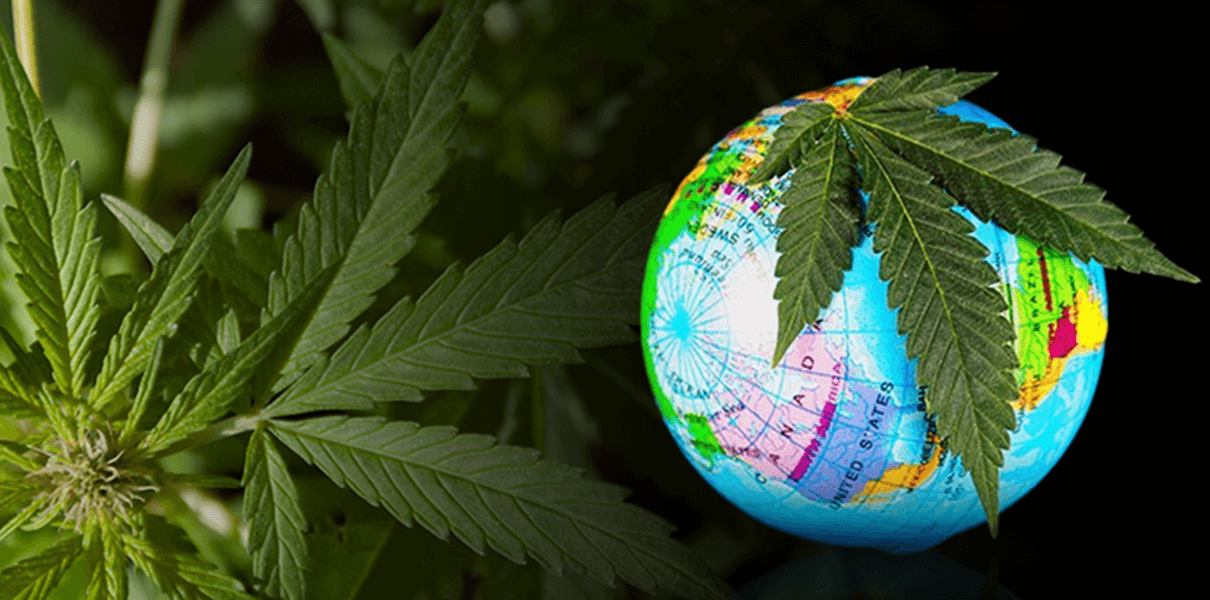The European Union (EU) made quite the waves in Vienna’s convention with the United Nations Committee on Narcotics and Drugs. The World Health Organization (WHO) made a number of recommendations to treat cannabis and cannabis related products. The majority of which were not strict towards tightening the rules around the use of cannabis, but two of them were significant:
- The first one is to remove extracts and tinctures from Schedule 1 of the 1961 convention article because they are already covered under the treaty and are deemed preparatory materials.
- The second one is to remove predominantly CBD products, which do not use more than 0.2% delta-9-tetrahydrocannabinol (THC), from international drug control regulations.
Drugs are classified under 1961 and 1971 conventions written in 4 schedules. Cannabis comes under schedule 1 and schedule 4. Schedule 4 basically contains drugs that are particularly harmful and have less medicine functionality, making cannabis use for medical purposes rather difficult. That is why it is recommended to remove it from schedule 4, given its many medicinal properties and many obligations to utilize this resource completely.
Everything you need to know about CBD!
Let’s first understand what basically CBD is and how it affects the human body and mind. CBD basically stands for cannabidiol, which can be extracted from a naturally occurring cannabinoid Sativa plant, also known as marijuana. Its extracts can be used in oils or other edibles as a part of feeling relaxing and calm. CBD is the psychoactive part of the cannabis plant, whereas its other main component THC (delta-9-tetrahydrocannabinol) is the active component. Yes, that’s correct! CBD does not alter your mind and make you feel ‘high.’
But, there may be exceptions to this theory. Approximately 5% of people explained that they felt euphoric after using CBD. Those people react differently to supplements and have a reactive state of mind after having Advil or Tylenol. It is, therefore, advised to take CBD under guidance or supervision. Another reason could be quality potency. As the FDA does not regulate CBD, the quality of the product may get hindered. For this, a quality check is recommended from a third party to see whether the product contains THC traces.
Hemp exempt from global drug rules
European Industrial Hemp Association is an international stakeholder company that has recommended that hemp be exempted from the global drug control system’s rules. THC is used to its maximum capacity of 1%. The proposition is most critical in the United States and Europe, waiting for the votes by United Nations Commissions on Narcotic Drugs (CND) in the coming December. Globally, hemp position has always been exclusive in UNCND as well as other global associations under International drug rules based on articles in Schedule 4 of the 1961 Single Convention on Narcotic Drugs. This exemption further spreads to the use of hemp in the food and cosmetic sector. Only the medical industry has been regulated according to the Single Convention. The rule helps the pharmaceuticals grow in their products without any significant hindrances now that the growth, production, and sales of cannabis are proposed to come under international standards. Only the illicit trafficking and abuse of cannabis is dealt with under a Single Convention.
Challenges in Europe
The scenario is Europe, currently, is very demanding. The EU states that hemp usage other than for medical purposes should be curtailed and state under narcotics. On the other hand, the stakeholders suggest that their business would see a downfall if such a thing happened. The growth rate of the products containing CBD would decline for the companies which use CBD extracts through traditional methods. This product ranges from cosmetics to beverages and food supplements.
The EU is all set to recommend a somewhat similar plan to its 12 EU members, but the decision is still unclear. The voting to be held on Dec 2, 2020, convention is precisely not known. Yet, the earlier proposal was set to vote against the World Health Organization’s (WHO) suggestions on removing the restriction on CBD.
The USA protests
Where the EU did not react, the USA showed its opposition to the convention. The US State attorney Patt Prugh clearly stated that the USA does not support the WHO recommendation of exempting the products which contain CBD extracts with less than 0.2% THC from international drug controls in the field of medicine from schedule 1 of 1961 convention. She further argues that the treaty remains 50-years old, and removing the products which are predominantly CBD would induce legal differences and forsakes international drug control. Without any regulation body over CBD, WHO would unintentionally lead to further abuse of cannabis in the country.
Prugh agreed on removing the exemption from schedule 4 but not from schedule 1, which is less restrictive. Also, she echoes research and maintains footnotes to comply with any concerning utilization of increased threshold limit of THC. The overutilization can lead to criminalization and would put further burden on the States financially, which was not acceptable by the USA. The focus on more research and finding the CBD’s therapeutic usefulness made it valid to be removed from Schedule 4.
Removal of extracts, tincture
So far the EU has given their support to remove extracts and tincture, including CBD, from schedule 1 of the 1961 convention, along with other nations like Peru, Mexico, Jamaica, Australia, France, USA, Columbia, Ecuador, South Africa, and Switzerland. As far as the second recommendation goes, only South Africa and Switzerland have shown positive signs that CBD containing less or equal to 0.2% THC extracts be removed from international control.
Vote of the Nations
There are in total approximately 45 countries that can vote in the convention to change the rules regarding CBD. Of these 45, 15 nations are covered by Russia and Nigeria, which have shown their disagreement in changing any CBD usage policies. The EU bloc has not given any indication whatsoever. Regardless of all the nations’ feelings, they are all set to vote on Dec 2, 2020, after so much delay and finally address the issue. The change in cannabis policy would be a major change in the UN conservative drug policy commission marking a historical event.





